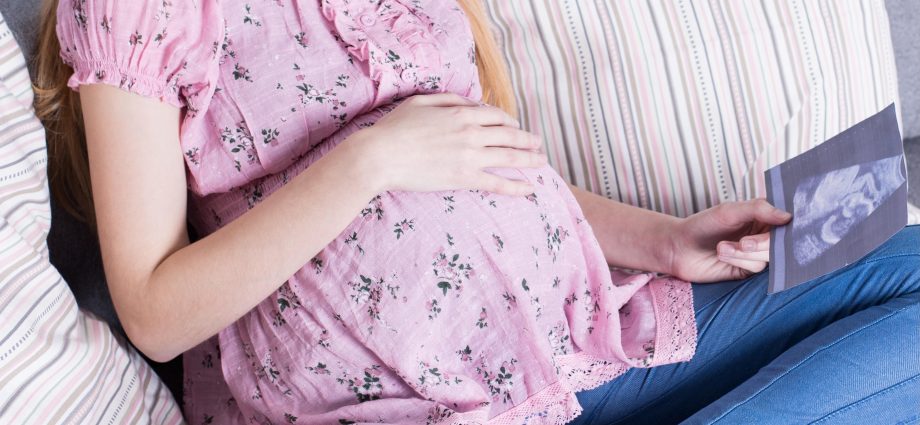THURSDAY, Dec. 8, 2022 (HealthDay News) — Pausing longer-term hormonal therapies to have a baby will not raise a breast cancer survivor’s risk of her tumor recurring, a new clinical trial concludes.
Women whose cancer is fueled by female hormones such as estrogen often are treated with medications — such as aromatase inhibitors or tamoxifen — that suppress those hormones or block their function, in an effort to keep the cancer from coming back.
In a new study, women who suspended their hormone therapy to conceive a baby had about the same short-term rate of breast cancer recurrence as those who remained on the therapy, researchers said at a presentation held Thursday at the San Antonio Breast Cancer Symposium.
This clinical trial “provides important data to support young women with HR-positive early breast cancer who are interested in a pregnancy and taking a break from endocrine [hormonal] therapy to pursue one,” said lead researcher Dr. Ann Partridge, vice chair of oncology at Dana-Farber Cancer Institute in Boston.
One expert applauded the new study and its findings.
“This trial is very exciting,” said Dr. Marleen Meyers, a medical oncologist at NYU Langone Perlmutter Cancer Center in New York City. She wasn’t involved in the study.
“One of the most devastating results for young women with breast cancer is the potential loss of fertility and ability to have biologic children,” Meyers explained. And with hormonal therapy typically been prescribed for five to 10 years, “waiting to complete treatment makes the possibility of carry a child less realistic,” she said.
“This study offers hope for some women with hormone receptor-positive breast cancer to be able to interrupt cancer treatment and still have good outcomes,” Meyers said.
Breast cancer most commonly occurs in women past childbearing age, but about 5% of new diagnoses occur in women 40 or younger, researchers said in background notes.
Younger patients have to juggle their disease with treatment’s possible effects on their health and fertility, Partridge explained.
“Forty to 60 percent of patients who are diagnosed with breast cancer at age 40 or younger are concerned about their future fertility, especially if the disease occurs before they could decide whether to become a mother or not,” Partridge said in a meeting news release.
Previous studies have shown that pregnancy after cancer is feasible and safe, but many women are worried that breast cancer treatments might interfere with conception, the researchers explained. They’re also worried that pregnancy might increase their cancer risk.
Partridge’s team hoped to settle these issues. Between December 2014 and December 2019, they recruited 518 breast cancer survivors age 42 or younger who wanted to become pregnant. Patients were enrolled in 116 medical centers from 20 countries around the world.
These women opted to pause their hormone therapy for about two years while they tried to conceive. Before this pause, the women had completed between 18 and 30 months of hormone therapy.
After a little more than three years, 44 participants had experienced a recurrence of breast cancer.
That three-year rate of recurrence, 8.9%, was similar to a 9.2% rate seen in a control group of breast cancer patients who continued their hormone therapy.
About 74% of the trial participants had at least one pregnancy, and about 64% had at least one live birth. Overall, 365 babies were born to these breast cancer survivors.
These rates of conception and childbirth are on par with or higher than rates seen in the general public, researchers said.
Once their families were complete, the women were strongly encouraged to resume hormone therapy. To date, about 3 out of 4 have started back with their meds.
“The strength of the study is that it is the first real evidence we have of safety in interrupting treatment for pregnancy, as well as the knowledge that the babies appear to be healthy,” Meyers noted.
However, she added that longer follow-up data is needed. The researchers said they do plan to continue tracking these women for any long-term health problems.
“Pregnancy after breast cancer is a very personal decision for which, ideally, a woman should take into account not only her desire to carry a pregnancy, but her baseline fertility, prior and current treatment, and any fertility preservation strategy she may have pursued, as well as the underlying risk of cancer recurrence she faces,” said co-researcher Dr. Olivia Pagani, a member of the Swiss Group for Clinical Cancer Research.
Findings presented at medical meetings are considered preliminary until published in a peer-reviewed journal.
More information
The American Cancer Society has more about hormone therapy for breast cancer.
SOURCES: Marleen Meyers, MD, medical oncologist, NYU Langone Perlmutter Cancer Center, New York City; San Antonio Breast Cancer Symposium, news release, Dec. 8, 2022
Copyright © 2026 HealthDay. All rights reserved.

